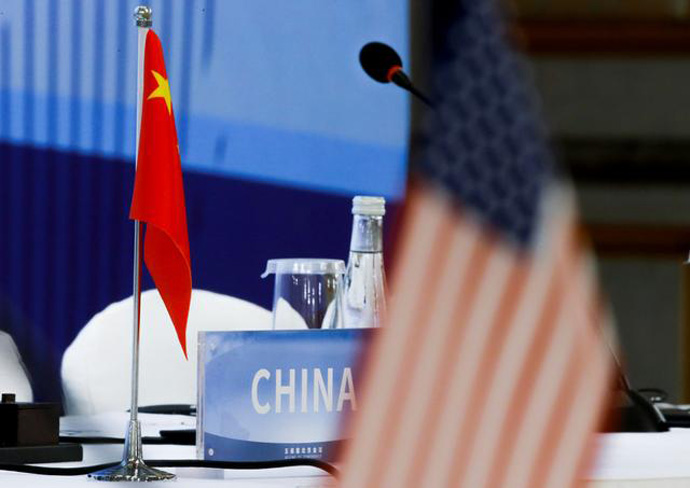
Sun Chenghao, Fellow, Center for International Security and Strategy of Tsinghua University; Munich Young Leader 2025
Aug 14, 2020
In weaponizing his rhetoric against China, the U.S. president may be digging himself into hole. Young people are not likely to take kindly to the undermining of their free speech. And now they can vote.
Sara Hsu, Visiting Scholar at Fudan University
Aug 07, 2020
To get relations back on track, the US and China must pursue a more nuanced approach to their bilateral economic policy; here are five steps to do that.
Zhang Monan, Deputy Director of Institute of American and European Studies, CCIEE
Aug 07, 2020
The Economic Prosperity Network, a new initiative hatched by the United States, is designed to marginalize China. But it’s largely an emotional exercise that will have painful costs for the network’s own members.

Huang Jing, University Professor at Shanghai International Studies University
Aug 07, 2020
China’s political system is fundamentally incompatible with the mainstream of the existing international order, leaving it two choices as it considers how to fend off Trump’s onslaught.
Aug 06, 2020
The third episode of The Pacific Dialogue, is between two prominent scholars – Prof. Ezra Vogel of the Harvard University and Prof. Jia Qingguo of Peking University. They spoke from their homes in Boston and Beijing respectively. The conversation took place on July 28, 2020, and was moderated by China-US Focus Editor-at-Large James Chau in Hong Kong.

An Gang, Adjunct Fellow, Center for International Security and Strategy, Tsinghua University
Aug 06, 2020
Will “Trump shock” turn out to be a temporary blip in the course of American politics or a chronic disease that will continue to infect future relations for years to come? Stay tuned.

David Shambaugh, Gaston Sigur Professor and Director of China Policy Program at George Washington University, Distinguished Visiting Fellow at Hoover Institution of Stanford University
Jul 31, 2020
The last three months has seen a number of major policy statements by top Trump Administration officials. If there was any question that the Trump administration seeks a new Cold War confrontation with China, these documents and speeches provide the answer.

Zhao Minghao, Professor, Institute of International Studies at Fudan University, and China Forum Expert
Jul 31, 2020
Making diplomacy fail may actually be the goal. But even if the hawks in America dream that confrontation will boost Trump’s re-election chances, they should understand that it could sink China-U.S. relations into a morass of incalculable proportions.

Chen Wenxin, Fellow and Deputy Director, Institute of American Studies, CICIR
Jul 31, 2020
The recent China bashing by senior American officials represents a resurgence of the suppressive politics of the U.S. in the 1950s, led by a now disgraced senator from Wisconsin whose name has become synonymous with intolerance and name-calling.

Zhang Yun, Professor, School of International Relations, Nanjing University
Jul 30, 2020
A new test for Chinese diplomacy will be guiding the United States to adapt to a new situation. By affirming the positive role of the U.S. in creating the postwar world order, China and others can show that they are not attempting to exclude it now but merely helping it evolve.
Back to Top

- China-US Focus builds trust and understanding between the U.S. and China through open dialogue among thought leaders.
- Our Offerings
- Topics
- Videos
- Podcasts
- Columnists
- Research Reports
- Focus Digest
- Stay Connected
-
Thanks for signing up!
- Get the latest stories from China-US Focus weekly.